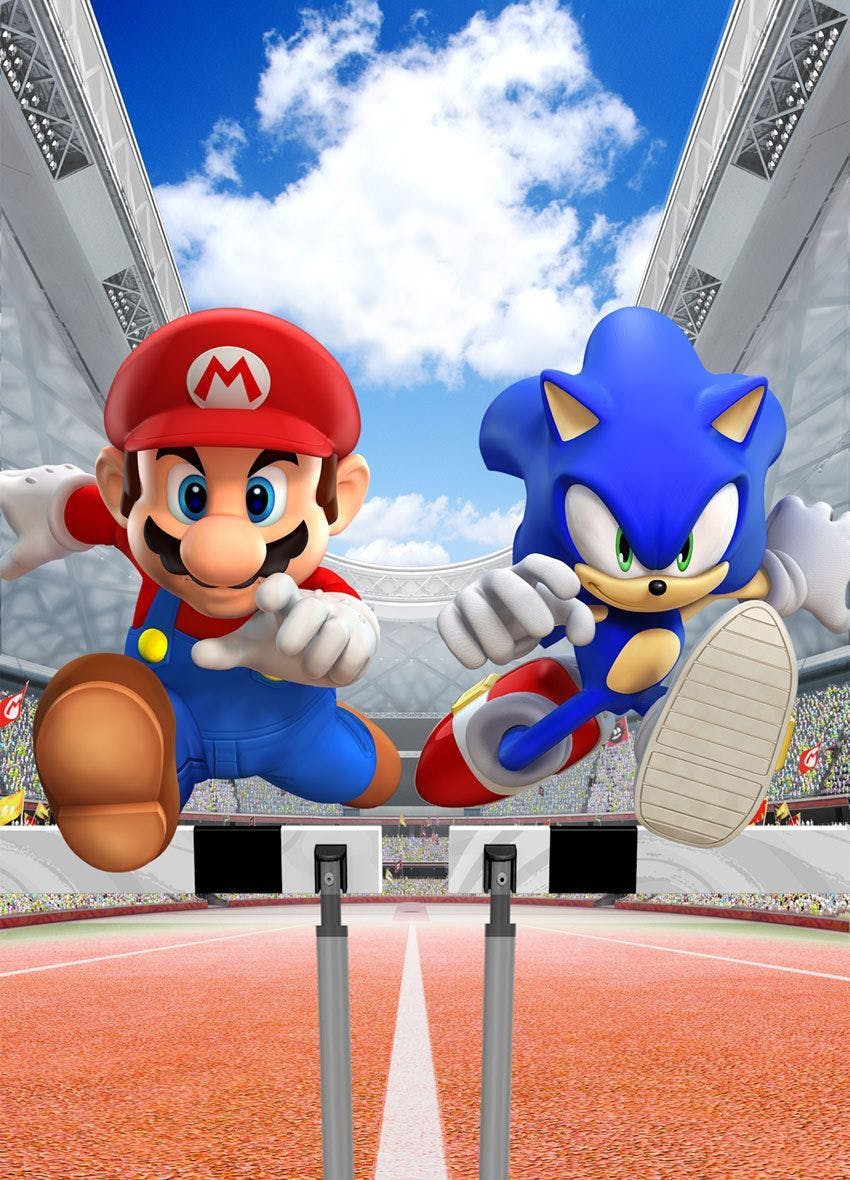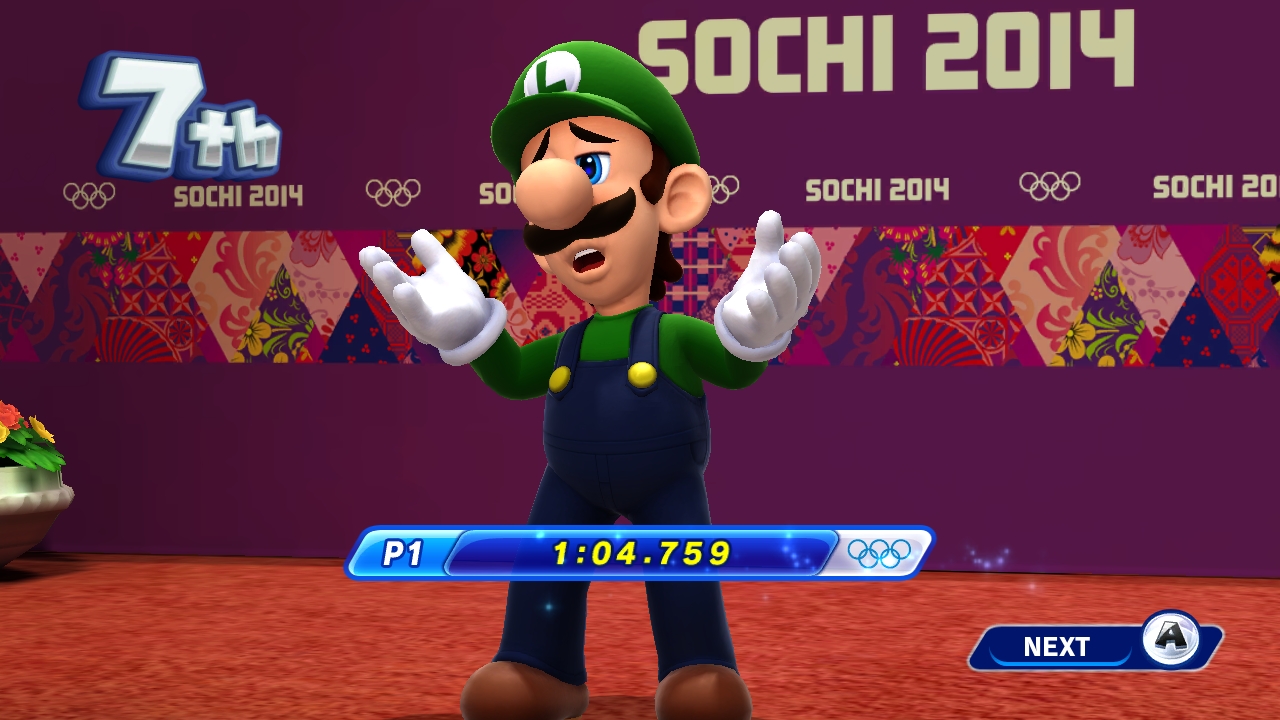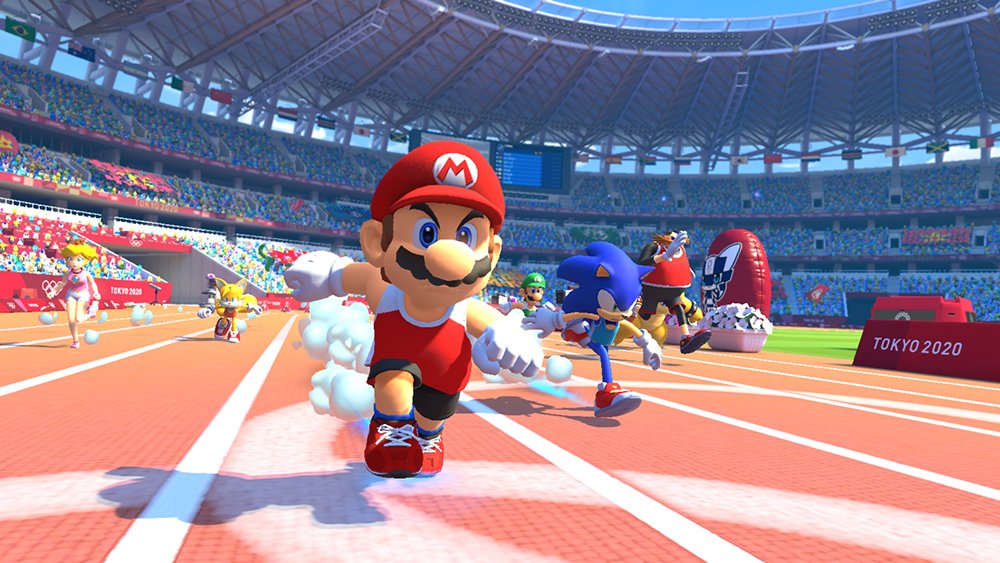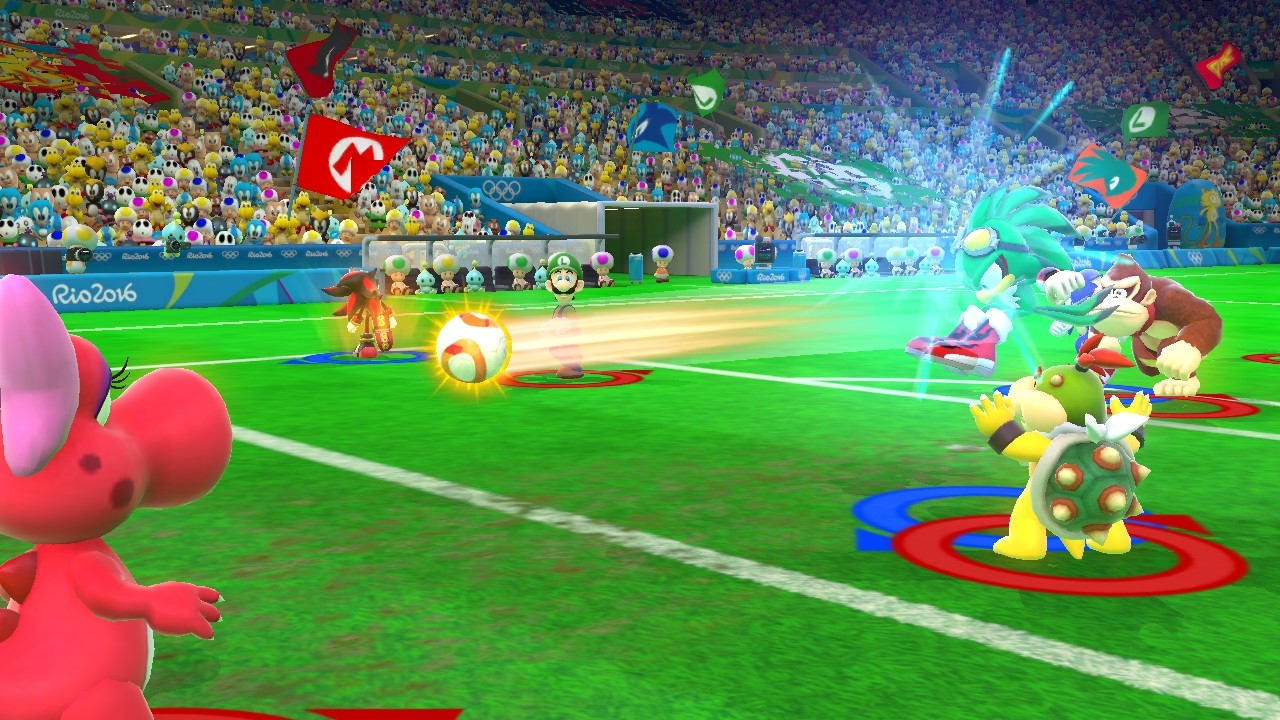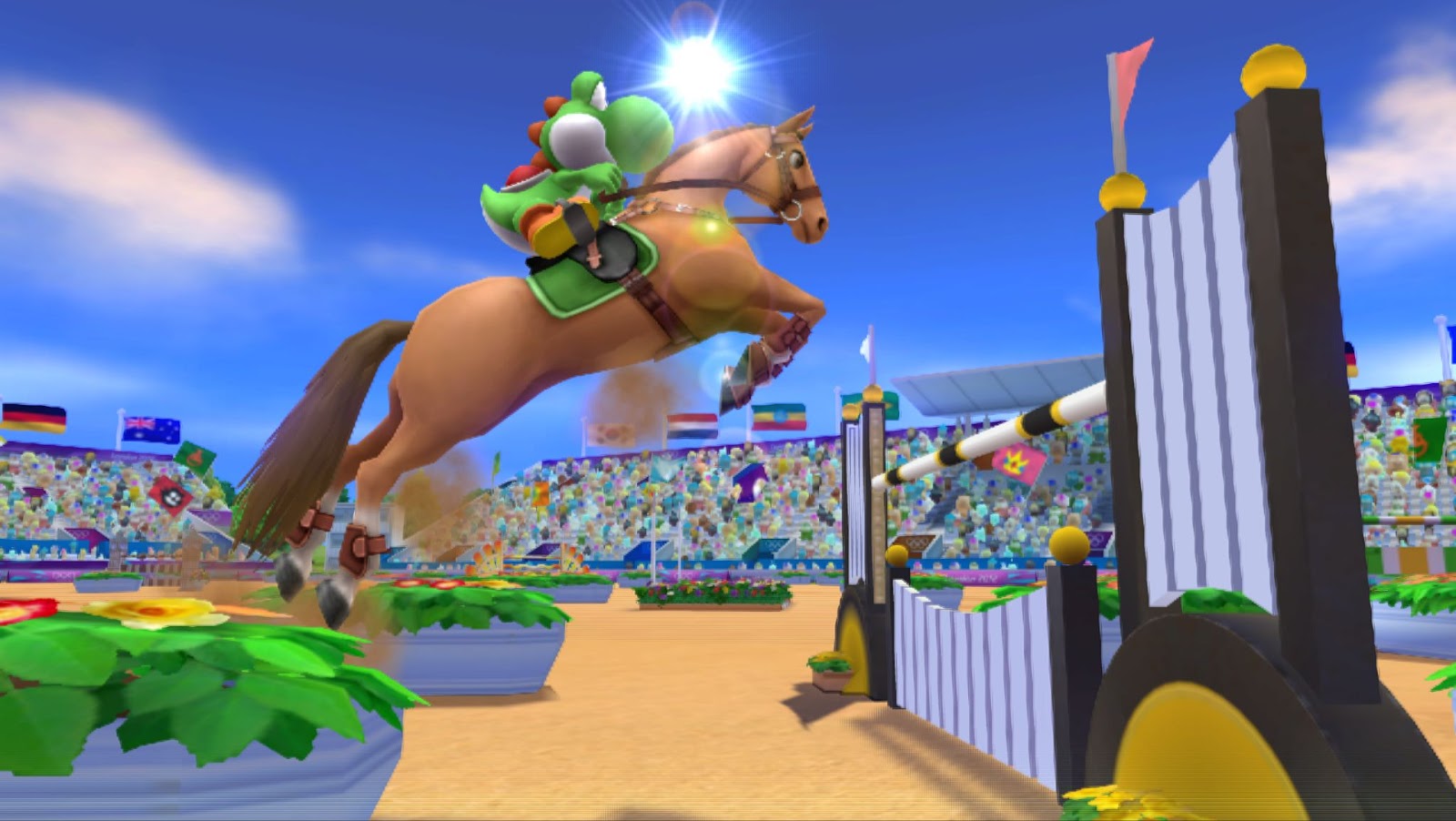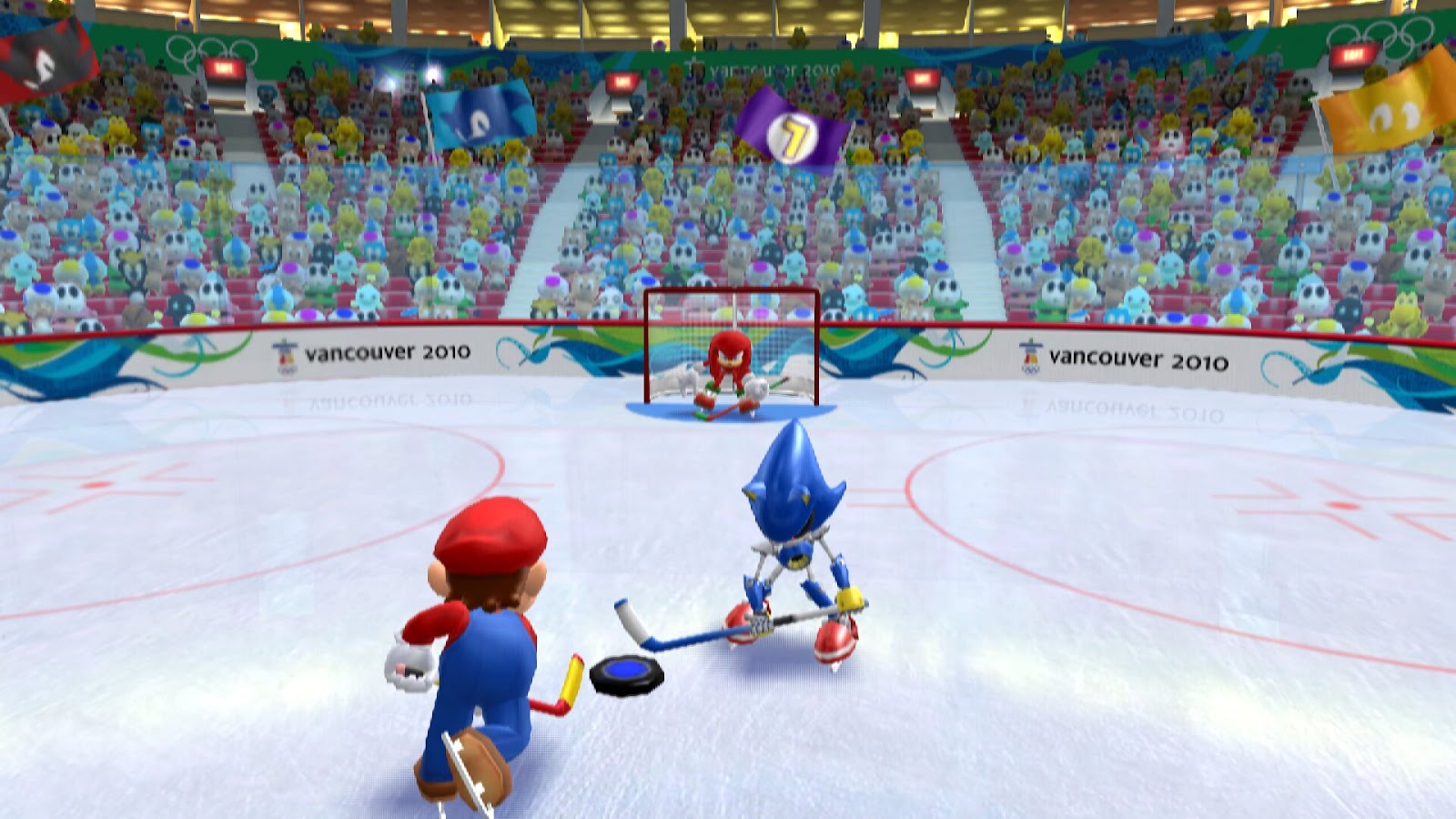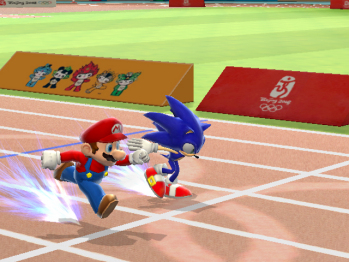It might not have been the first choice for many fans, but the first major crossover between the Mario & Sonic franchises involved the Olympics. The very concept of both franchises colliding in this sort of friendly rivalry attracted the attention of millions, letting them play as iconic characters in realistic settings. As time went on, attention surrounding the series quickly dwindled, but that didn’t stop it from covering each year of the Olympics with near-perfect attendance up until 2020. It can be interesting to see how these collections of sports have changed over time, as well as which Mario & Sonic games could be ranked as “the best” in terms of sales.
All information was taken fromVGSales except for information on Mario & Sonic at the Tokyo 2020 Olympic Games, which was taken from
All Games in the Mario & Sonic Series Ranked by Copies Sold
6. Mario & Sonic at the Sochi 2014 Olympic Winter Games
5. Mario & Sonic at the Olympic Games Tokyo 2020
4. Mario & Sonic at the Rio 2016 Olympic Games
3. Mario & Sonic at the London 2012 Olympic Games
2. Mario & Sonic at the Olympic Winter Games (2010)
1. Mario & Sonic at the Olympic Games (2008)
6. Mario & Sonic at the Sochi 2014 Olympic Winter Games — ~800,000 Copies Sold
The Sochi 2014 Olympic Winter Games fell flat when compared to the rest of the series. Though it had some interesting events and special characters to choose from, there wasn’t much it offered that previous titles didn’t have as well. An exception to this is integration with the Wii U GamePad, which likely led to more frustrations instead of fun.
With the exception of Tokyo 2020, Sochi 2014 is also the only game in the Mario & Sonic series to lack a handheld version. Whereas all other previous games had both a Wii and DS or 3DS release, this title was only available on the Wii U. Being locked onto a generally unpopular device while also offering gameplay that had become somewhat stale is likely what led to Sochi 2014 becoming the least-sold game in the series.
5. Mario & Sonic at the Olympic Games Tokyo 2020 — ~900,000 Copies Sold
Oddly enough, this title was released alongside
Currently, this title is the last Mario & Sonic game to exist. It’s unknown if a new installment featuring the 2024 Olympics will be revealed. Sochi 2014 was the last Winter Olympic title for the series, but each of the Summer games were released on schedule. It’s interesting to consider what might change for this potential new title, including whether or not the 8-bit events and the various guest characters will make a return.
Buy now on
4. Mario & Sonic at the Rio 2016 Olympic Games — ~1.19 Million Copies Sold
The Rio 2016 Olympic Games gave the Mario & Sonic series a bit of revitalized popularity. This was partially thanks to the title being featured on both the Wii U and 3DS, allowing it to hit both playerbases at once. While previous handheld versions experimented with their own stories and additional content, the Wii U version was notably more developed, featuring its own entire hub world that let players interact with various Mario and Sonic characters.
Unfortunately, this was when the Mario & Sonic Olympic titles started to lose their luster. Though Rio 2016 sold more than its predecessor, Sochi 2014, it also missed out on Dream Events and focused on a more simplistic progression system. It doesn’t make for a terrible time, but there isn’t much reason to check it out if you own any of the older titles.
Buy now on
3. Mario & Sonic at the London 2012 Olympic Games — 3.74 Million Copies Sold
The London Olympics marked the first “repeat” for Mario & Sonic, giving them familiar events in a new package. It offers a lot more in the way of unlockables and unique challenges, building on the rival battles found in the previous game while introducing new styles of play like horse riding and platforming. Other Mario & Sonic titles included new events, of course, but this London 2012 release has enough to easily rival the Wii U and Switch games.
This title was the last Mario & Sonic game to be released for the Wii, yet it was the first to be released for the 3DS. The 3DS version included its own unique story mode, giving long-time fans a taste of Mario and Sonic joining hands in an adventure…even if it was just focused around completing Olympic events.
Buy now on
2. Mario & Sonic at the Olympic Winter Games (2010) — 6.98 Million Copies Sold
Mario & Sonic at the Olympic Winter Games might be the best crossover that solely features the two franchises. It introduced a whole career mode, numerous Winter-themed events, and rivals that provided unique duels. The DS game was the first to introduce a story mode to the series while the Wii version had integration with the Wii Balance Board, allowing for even more styles of play.
The Sochi 2014 title took many cues from this one, including the reintroduction of major events like Dream Figure Skating and Alpine Skiing. It’s somewhat of a shame that the Winter Olympics kept getting skipped after these two releases, especially since this original title is arguably the peak of the Mario & Sonic series.
Buy now on
1. Mario & Sonic at the Olympic Games (2008) — 13.06 Million Copies Sold
Truthfully, the very first Mario & Sonic game was pretty barebones. It seemed like it was mostly created for the novelty of playing through various sports with the popular characters, leading to some mixed reviews across the board. Even so, this start to what would become its own series laid a lot of groundwork for future games to come. Plus, it was the very first time Mario and Sonic actually met each other in a video game after years of being rival mascots. If nothing else, the original Mario & Sonic title should be respected for the impact it left on both Nintendo and SEGA.
Buy now on
Final Thoughts
Mario and Sonic might have deserved a better crossover than these minigame collections, but they were still able to provide a fun experience in certain contexts. This series has become somewhat stagnant in the modern era; it’s a complete mystery as to whether it will even continue once 2024 comes. If it does, one can only hope the developers try to give it another burst of creativity that hasn’t been tapped into since 2014.

